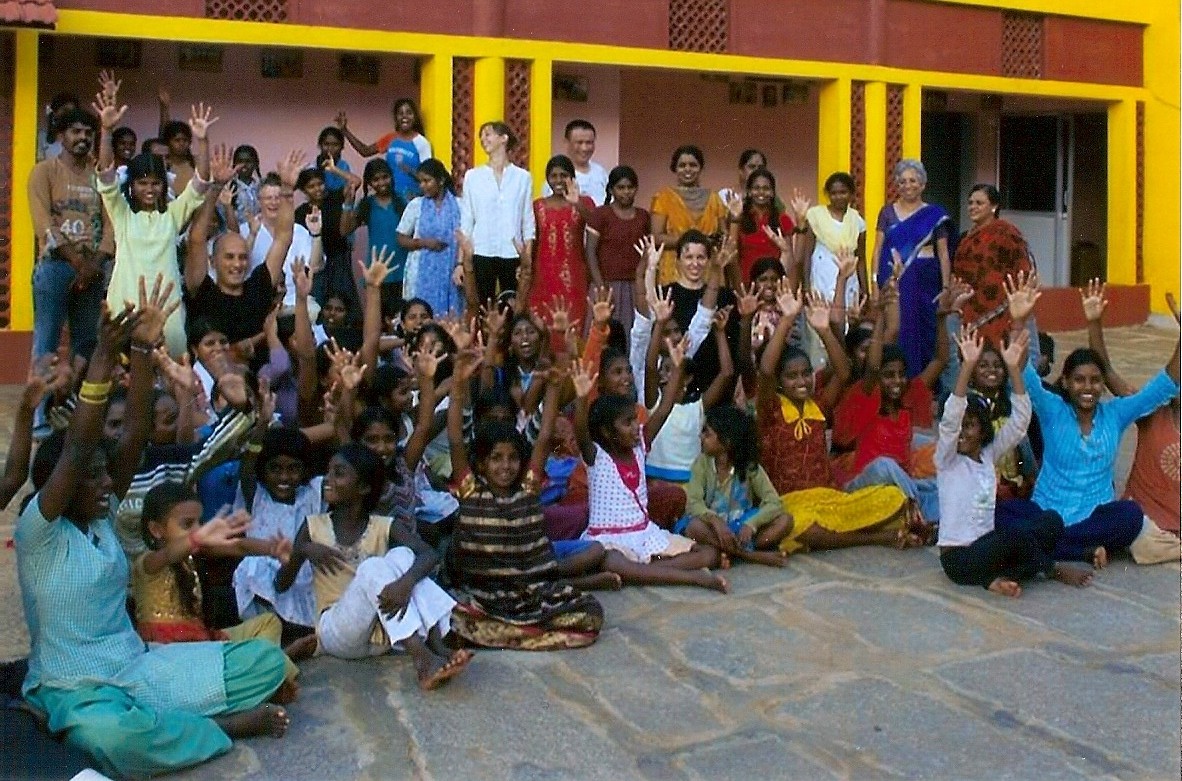Sometime in the first decade of this century, we came together with curious minds and open hearts at a gathering (not quite a conference) of like-minded people in Bangalore, with collective focus on young lives. At that time, I lived in Oxford in the UK and was a trustee for a small home for girls (who were abandoned or brought here by single parents unable to care for them) called Baale Mane, near Bangalore. I met a slender young man, with a mop of brown hair that framed deep brown eyes, which shone with enthusiasm and passion when he spoke about his work – that was Vishal Talreja, one of the co-founders of Dream a Dream.
The girls at Baale Mane were cocooned in the home at Gopalpura village, interacting largely with the rural community with many Dalit families. Most attended the primary school down the lane or the secondary school, which was a short bike ride away. The girls were bright, energetic, loving and talented. They could draw elaborate freehand rangoli or henna patterns in minutes. The teenagers among them organised plays about the rights of children in the underprivileged communities of Bangalore or put amazing performances of dollu kanitha (a major popular drum dance of Karnataka). Their bright saris tucked high, wearing silver jewellery, a dozen or so girls formed pyramids and danced to the beat of a drum in this traditional tribal dance. They were a confident bunch within Baale Mane, but they never took the bus into town, bought a cinema ticket or an ice cream for themselves. They felt safe and secure in their institutional home but were fearful of the big world outside. We realised we had to prepare the girls for independent lives in the city: to pursue college or vocational study, life in a hostel or work.
Vishal described one of Dream a Dream’s core programmes that offered life skills development for children and young people to overcome adversity through insight, emotional intelligence and a resilient mind set. He described fun residential days with drawing, music and dance, organised to explore problems and work through past traumas of violence, child labour, abuse and neglect. As we talked, I pictured fifteen-year-old, Kirti, then a confident leader at Baale Mane, who led the girls in yoga every morning, welcomed visitors and took them on a tour of her home. She was a tiny tot of four when her mother brought her to Baale Mane. Her father was an alcoholic, and her mother feared he would beat her to death. Then there was Champa, who was rescued from a factory when she was six. She had worked there for two years sorting out glossy locks of hair shed at South Indian temples (as a part of religious ritual), an essential source of a wig making operation in New York. Champa hoped to join the police force. Dream a Dream was just what girls like Kirti and Champa needed.
We agreed to send the girls for Dream a Dream programmes. They returned happy and more confident after attending residential camps. Mentors there provided one-to-one support and built the children’s self-esteem and capacity to make sensible choices. Ever so subtly, Dream a Dream worked with the children to define their aspirations. We believed Kirti had the capacity for management in the corporate world. However, with the help of her mentor she chose a different path, married a person who earlier lived on the streets and together they started a small mobile phone business. She insisted that her mother lived with her. When I last met Kirti, she was a happy mother of two. She shared, “My mother saved my life and now since my father is gone, she can enjoy being with her grandchildren.”. Champa didn’t become a policewoman; she liked the uniform because she wanted to wear trousers, but after a visit to a police station, she decided that the strict discipline wasn’t for her. She chose a more creative path by training in graphic design.
These are few of the stories that came to my mind as I reminisced about my years of association with Dream a Dream. Vishal (Co-founder, Dream a Dream) and Suchetha (CEO, Dream a Dream) are inspirational leaders, who have an infectious passion which made me join the board of Dream a Dream UK. While no longer actively engaged in Bangalore, I have watched in awe as Dream a Dream has grown in stature to advise state governments and train teachers to improve learning for children from economically vulnerable backgrounds. They work to reshape the curriculum with children at its heart and train their educators to be empathetic and kind.
I wish all at Dream a Dream many years of joy, growth and impact on the lives of children. May all thrive, especially the young people as we shift the narrative to enable all to reach their full potential. With love, blessings and gratitude that I have been a small part of the Dream a Dream journey.
About the Author:
Kunku Soota is a coach, mentor, advocate and trustee. Her career has encompassed academics, publishing, human resources and general management across India and UK. She now lives in Oxford and works pro bono with not-for-profits in her neighbourhood and beyond. She is a grandmother and fundraiser for raising awareness and research into a rare childhood cancer, Langerhans Cell Histiocytosis. She has formally been on Dream a Dream’s UK board since April 2015 and informally been associated with Dream a Dream since 2008.


